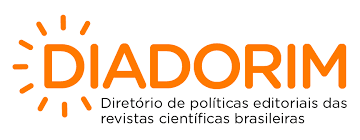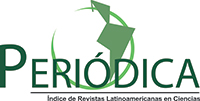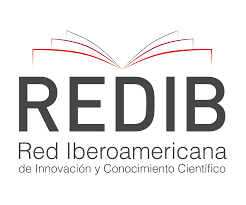PARADA CARDIORRESPIRATÓRIA E ENFERMAGEM: O CONHECIMENTO ACERCA DO SUPORTE BÁSICO DE VIDA
DOI:
https://doi.org/10.5380/ce.v18i2.32579Palavras-chave:
Educação em enfermagem, Parada cardíaca, Conhecimento, Ressuscitação cardiopulmonar.Resumo
Estudo descritivo e transversal cujo objetivo foi avaliar o conhecimento teórico dos enfermeiros de um hospital do interior de Minas Gerais-Brasil acerca do suporte básico de vida utilizado no atendimento à parada cardiorrespiratória. A amostra foi constituída por 16 enfermeiros, para a coleta de dados utilizou-se instrumento construído com base nas recomendações da American Heart Association para ressuscitação cardiopulmonar. Os resultados mostraram lacunas no conhecimento acerca dos ritmos identificados na parada cardiorrespiratória, sequência de atendimento, número de ciclos compressão versus ventilação, abertura das vias aéreas, local de colocação das pás do desfibrilador, procedimento a ser realizado imediatamente após o choque, e cargas, em joules, recomendadas para a desfibrilação. Recomenda-se a reavaliação e capacitação contínua dos enfermeiros para adequado desempenho no atendimento em parada cardiorrespiratória, contribuindo para a sobrevida da população.Downloads
Publicado
Como Citar
Edição
Seção
Licença
A Cogitare Enfermagem se reserva no direito de efetuar, no artigo publicado, alterações de ordem normativa, ortográfica e gramatical, com vistas a manter o padrão culto da língua, respeitando, porém, o estilo dos autores.
O estudo publicado é de inteira responsabilidade do(s) autor(es), cabendo exclusivamente à Cogitare Enfermagem a avaliação do manuscrito, na qualidade de veículo de publicação científica. Não será permitido acréscimo ou mudança de autoria durante a etapa de avaliação ou após aceite do texto submetido.
A Cogitare Enfermagem não se responsabiliza por eventuais violações à Lei nº 9.610/1998, Lei Brasileira de Direitos Autorais.
A Cogitare Enfermagem permite que o autor detenha o copyright dos artigos aceitos para publicação, sem restrições.
Propriedade Intelectual e Termos de uso
Responsabilidade do Autor:
Quanto a autoria, os autores necessitam especificar, na página de identificação, qual o tipo de contribuição individual que exerceu durante a elaboração do artigo. Conforme os critérios estabelecidos pelo ICMJE disponível em: http://www.icmje.org/recommendations/browse/roles-and-responsibilities/defining-the-role-of-authors-and-contributors.html .
É importante destacar que são considerados quatro critérios mínimos de autoria, e todos aqueles designados como autores devem atendê-los, são eles:
- Contribuições substanciais para a concepção ou desenho do estudo; ou a aquisição, análise ou interpretação de dados do estudo;
- Elaboração e revisão crítica do conteúdo intelectual do estudo;
- Aprovação da versão final do estudo a ser publicado;
- Responsável por todos os aspectos do estudo, assegurando as questões de precisão ou integridade de qualquer parte do estudo.
Não será permitido acréscimo ou mudança de autoria durante a etapa de avaliação ou após aceite do texto submetido.
Os artigos publicados estarão licenciados sob a licença Creative Commons CC BY 4.0 Creative Commons — Attribution 4.0 International — CC BY 4.0 – A atribuição adotada pela Cogitare Enfermagem é permitida:
- Compartilhar – copiar e redistribuir o material em qualquer mídia ou formato;
- Adaptar – remixar, transformar e construir sobre o material para qualquer finalidade, mesmo comercialmente;
- Atribuição — Você deve atribuir o devido crédito, fornecer um link para a licença, e indicar se foram feitas alterações. Você pode fazê-lo de qualquer forma razoável, mas não de uma forma que sugira que o licenciante o apoia ou aprova o seu uso;
- Sem restrições adicionais — Você não pode aplicar termos jurídicos ou medidas de caráter tecnológico que restrinjam legalmente outros de fazerem algo que a licença permita.
Responsabilidade do Site:
A Cogitare Enfermagem encoraja os Autores a arquivar seus manuscritos aceitos, publicando-os em blogs pessoais, repositórios institucionais e mídias sociais acadêmicas, bem como postando-os em suas mídias sociais pessoais, desde que seja incluída a citação completa à versão do website da revista.”






















